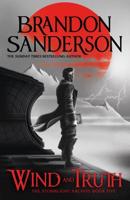Publisher's Synopsis
Book may have numerous typos, missing text, images, or index. Purchasers can download a free scanned copy of the original book (without typos) from the publisher. 1894. Excerpt: ... CONFUCIUS AND HIS TEACHINGS. This review of the life of the great sage of China is condensed from the Prolegomena to "The Chinese Classics," by Dr. Legg, and all the quotations of his words are the translations of Dr. Legg in the same vast and valuable work. Other sources of information have been Dr. Villiamson's "Travels in North Clftna," Mr. Watter's "Confucian Temple," and various papers published by missionaries in the Shantung Province, combined with personal observations among Confucianists. Confucius, whose latinized name is made up from his family name Khong, with his title hu chu, the Master, was born 551 B.c, in what is now the western part of the Shantung Province, in China. At the time of his birth Cyrus had reigned for eight years over the Medes and Persians. Babylon had not yet fallen, and the son of Nebuchadnezzar walked in its hanging gardens. The prophet Daniel had seen his fellow-captives escape unscathed from the fiery furnace, but had himself yet to be cast into the den of lions. Twelve monarchs more were to reign in Macedon before Alexander the Great should consolidate the states of Greece. Socrates, Plato, and Pericles were not yet born, and the Parthenon at Athens and the Temple of Diana at Ephesus were yet unbuilt. Servius Tullius ruled in Rome, whose greatness was yet to be attained, and just five centuries were to pass before Julius Csesar should publish his commentaries on the invasion of Britain and the conquest of Gaul. Eight years later, Sakya Muni, the Buddha, would die in India; but of these two men, who would together dominate the minds of a third of the human race through thousands of years, the younger would never hear of the elder; and centuries would roll away before the doctrines of the one would invade the country and capture the imagination of...

























